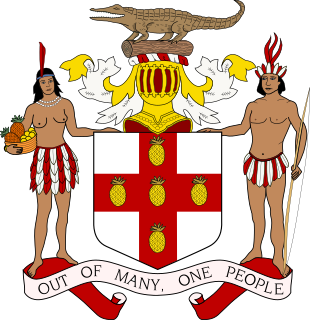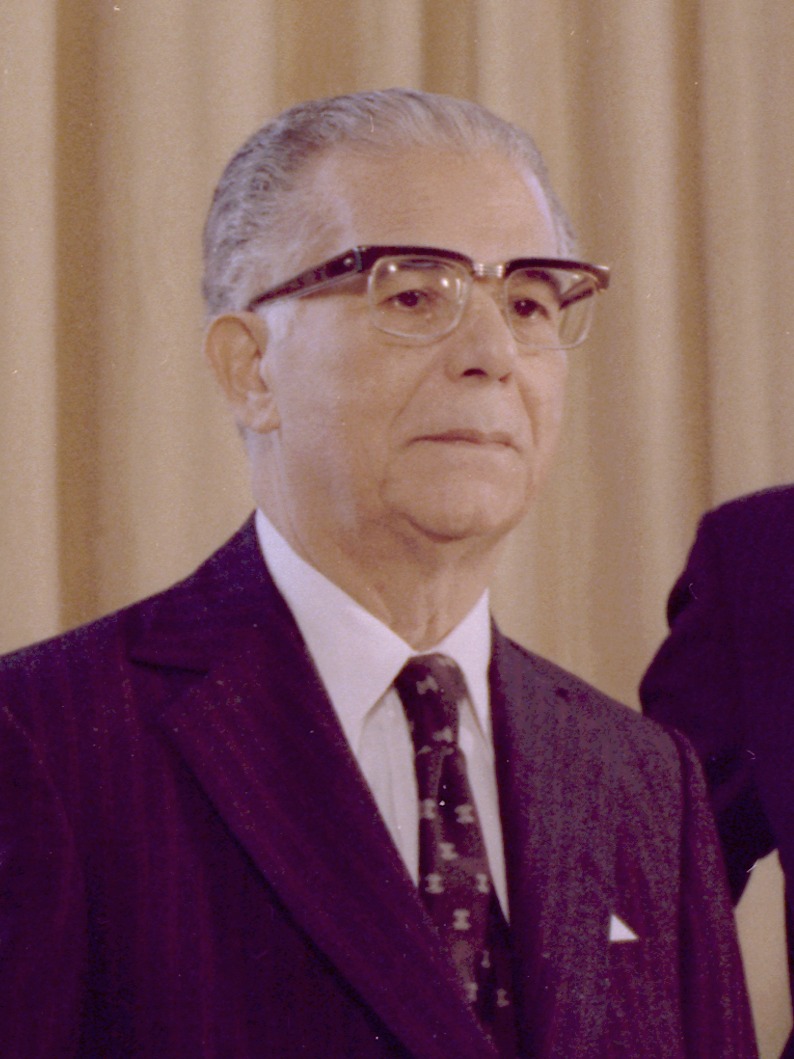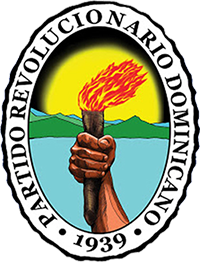The Autonomist Liberal Party, renamed usually semplified in Liberal Party in 1898, was one of major parties from 1910 until the Cuban Revolution the late 1950s, when it was exiled.

Elections in Rwanda take place within the framework of a multi-party democracy and a presidential system. The President and majority of members of the Chamber of Deputies are directly elected, whilst the Senate is indirectly elected and partly appointed.
Guatemalan Christian Democracy was a political party in Guatemala. A moderate, reformist and anti-Communist party, it was a member of Christian Democrat International.
The National Encounter Party is a political party in Paraguay.

Legislative elections were held in El Salvador on 10 March 1974. The result was a victory for the National Conciliation Party, which won 36 of the 52 seats whilst the National Opposing Union won only 15. However, the election was marred by massive fraud and the official vote counts were not published.
The People's Democratic Party is a minor political party in the Dominican Republic. It first contested national elections in 1974, when it provided the main opposition to the ruling Reformist Party due to the Dominican Revolutionary Party not contesting the elections. Its candidate, Luis Homero Lajara Burgos, received 15% of the vote in the presidential election, whilst the party won three seats in the House of Representatives. In 1978 many of the opposition parties returned to the electoral scene. Burgos received only 0.4% of the vote in the presidential election, whilst the party lost all three seats in the House of Representatives after a similar result in the Congressional elections.
The Christian People's Party is a minor political party in the Dominican Republic. It first contested national elections in 1986, when it was part of the Dominican Revolutionary Party-led alliance which lost to the Social Christian Reformist Party coalition. In the 1990 elections it formed an alliance with MIM, but received only 0.4% of the national vote and failed to win a seat. The party did not contest the 1994 elections, but was again part of a Dominican Revolutionary Party-led alliance in the 1998 elections. However, it switched its allegiance to the Social Christian Reformist Party for the 2002 elections. It had a candidate in the 2004 presidential elections, but they received less than 0.5% of the vote. In the 2006 elections it was part of the defeated Grand National Alliance. The party did not contest the 2010 elections.
The National Civic Veterans Party is a minor political party in the Dominican Republic. It first contested national elections in 1982 when it won 1.6% of the vote, but failed to win a seat. For the 1986 and 1990 elections it was part of the victorious Social Christian Reformist Party-led coalition. For the 1994 elections it changed its allegiance to the Dominican Revolutionary Party-led coalition that won the Congressional elections but lost the presidential vote. It contested the 2002 elections alone, but failed to win a seat after receiving only 0.5% of the vote. For the 2006 elections it was part of the defeated Grand National Alliance.

Early general elections were held in Jamaica on 15 December 1983. The election was boycotted by the main opposition party, the People's National Party, in protest at the refusal of the ruling Jamaican Labour Party to update the electoral roll. Whilst several minor parties participated in the election, most seats were unopposed: in the six seats where voting took place, voter turnout was about 55%, so this translated into a nationwide figure of 2.7%. It allowed the Labour Party to win all 60 seats in the House of Representatives, with their leader, Edward Seaga, continuing as Prime Minister.

General elections were held in Brazil on 2 December 1945, the first since the establishment of Getúlio Vargas' Estado Novo. The presidential elections were won by Eurico Gaspar Dutra of the Social Democratic Party (PSD), whilst the PSD also won a majority of seats in both the Chamber of Deputies and the Senate. Voter turnout was 83.1% in the presidential election, 83.5% in the Chamber elections and 76.7% in the Senate elections.

General elections were held in the Dominican Republic on 1 June 1966. Following the 1963 coup which toppled elected president Juan Bosch of the Dominican Revolutionary Party, supporters of his constitutional reforms were excluded from the elections, although Bosch himself contested them. The result was a victory for Joaquín Balaguer of the Reformist Party, whilst his party also won the Congressional elections. Voter turnout was 75.6%.

General elections were held in the Dominican Republic on 16 May 1970. The main opposition party, the Dominican Revolutionary Party, did not contest the election, leaving only the ruling Reformist Party and some right-wing and centre-right parties. Incumbent Joaquín Balaguer won the presidential election, whilst his Reformist Party won the Congressional elections. Voter turnout was 63.5%.

General elections were held in the Dominican Republic on 16 May 1978. Following diplomatic pressure from American President Jimmy Carter, the elections were free and competitive and contested by all political parties, unlike the previous elections in the 1970s. Antonio Guzmán Fernández won the presidential election, whilst his Dominican Revolutionary Party won the Congressional elections. Voter turnout was 75.8%.

General elections were held in the Dominican Republic on 16 May 1990. Following a long vote count, Joaquín Balaguer of the Social Christian Reformist Party was declared winner of the presidential election, whilst in the Congressional elections the PSRC received the most votes and won a majority in the Senate, although the Dominican Liberation Party won the most seats in the House of Representatives. Voter turnout was 59.9%.

General elections were held in the Dominican Republic on 16 May 1994. Joaquín Balaguer of the Social Christian Reformist Party won the presidential election, whilst the Dominican Revolutionary Party-led alliance won the Congressional elections. Voter turnout was 87.6%.

Presidential elections were held in the Dominican Republic on 16 May 1996, with a second round on 30 June. Whilst José Francisco Peña Gómez won the most votes in the first round, he was defeated by Leonel Fernández in the second round, after the Social Christian Reformist Party, whose candidate had lost in the first round, declared their support for Fernández. Voter turnout was 78.6% in the first round and 76.8% in the second.

Parliamentary elections were held in Brazil on 15 November 1974. The National Renewal Alliance Party won 203 of the 364 seats in the Chamber of Deputies, whilst the Brazilian Democratic Movement won 16 of the 22 seats in the Senate. Voter turnout was 80.9%.

General elections were held in Romania in December 1928. The Chamber of Deputies was elected on 12 December, whilst the Senate was elected in three stages on 15, 17 and 19 December. The result was a victory for the governing National Peasants' Party-led alliance, which won 348 of the 387 seats in the Chamber of Deputies and 105 of the 110 seats in the Senate elected through universal male vote. Of the 348 Chamber seats won by the alliance, the National Peasants' Party won 326, the Social Democratic Party won 9, the German Party won 8, the Hungarian People's Party won 2 and three were won by Jewish candidates. It is generally regarded as the freest election ever held in Romania until the 1990s.

General elections were held in Romania in July 1932. The Chamber of Deputies was elected on 17 July, whilst the Senate was elected in three stages on 20, 24 and 26 July. The result was a victory for the National Peasants' Party-German Party alliance, which won 274 of the 387 seats in the Chamber of Deputies and 104 of the 113 seats in the Senate elected through universal male vote. Of the 274 Chamber seats, 265 were taken by the National Peasant's Party and nine by the German Party.

General elections were held in Colombia on 19 April 1970 to elect the President, the Senate and the Chamber of Representatives. It was the first time all three institutions had been elected on the same day, and was also the last election under the National Front agreement, which had restricted electoral participation to the Conservative Party and the Liberal Party, with each party allocated 50% of the seats in both houses, whilst the Presidency alternated between the two parties. As a result, the main contest in parliamentary elections was between factions within each party, whilst only Conservative candidates ran for the presidency. The result was a victory for Misael Pastrana Borrero, who received 40.7% of the vote. However, supporters of Gustavo Rojas Pinilla claimed that the election had been rigged in favour of Pastrana. Rojas had also been supported by the Christian Social Democratic Party. The 19th of April Movement guerrillas traced their origins to this alleged fraud.














